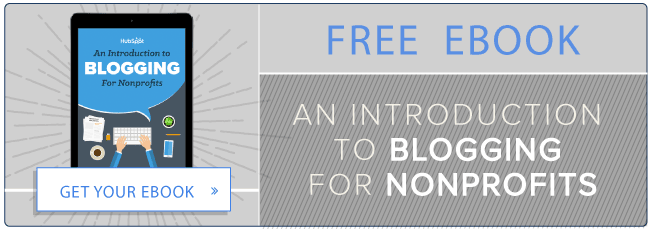
Giving Tuesday is one of the biggest donation days of the year. Once it's over, don't let its impact fade away. Sure, you've seen a boost in donations off your Giving Tuesday campaign, but you've also gotten so much more value you can use to advance your organization's mission.
Once the Giving Tuesday campaign itself is over, have a follow-up plan that keeps the value growing throughout the next year. Here are four pieces to a successful post-Giving Tuesday plan.
1) Run An Engagement Campaign For People Who Donated On Giving Tuesday
Donating is a strong expression of interest. Run a targeted campaign for the Giving Tuesday donors to get them further engaged with your organization. This is not a campaign asking for more money. Too soon.
A Giving Tuesday donor campaign can start with a special thank you for making the day so special. Share some details about what was achieved that day: how much was donated, where that money is going and whom it will help.
Create some image or emoji-laden social content that announces what a rock star they are for having given to your organization on Giving Tuesday. Then encourage them to share the pre-fabbed social content via their own social media profiles. Instead of "I voted" stickers we get on election day, these are the "I donated…" or "I gave to…" social media updates.
If you have events or volunteer opportunities, you might center your campaign around getting them involved in them. Frame it as not just an opportunity for them to be involved, but for your organization to be able to meet its great donors in person and thank them personally.
2) Build Content About How The Donations Will Be Used, Showing Maximum Impact
Some of this content can be used in your Giving Tuesday donor campaign, as well as other targeted campaigns or general social media content.
Start with an eye-catching infographic that shares interesting tidbits about what you raised on Giving Tuesday and how that translates to the good your nonprofit does. Does your program run a program providing after-school tutoring to students in need? How many more students and tutoring hours will the donations support? Let people see what the money will do.
Will the money be used for building improvements or at a physical location? Take a video and give a tour of where and how the money will create more or enhanced resources for the community. As the improvements get made, post update videos they can share too.
3) Plan How To Re-Engage This Year's Donors For Other Giving Occasions
Just because you're not asking your Giving Tuesday donors for another donation right now, doesn't mean you won't in the future. You'd be silly not to prep them for a future ask.
When you think about a donation campaign for this group, it might be worthwhile to segment them further. For example, new donors and repeat donors, by amount of donation, whether they engaged with your engagement campaign, or got involved in other ways with your organization since their Giving Tuesday donation. It makes sense that these different groups would get different messaging.
What you know they all have in common is that they're motivated by group action and social media events. You might think about building a donation campaign around another meaningful event or even otherwise ordinary social media meme (#WednesdayWisdom, anyone?). An animal rescue group might build something around National Puppy Day (it's coming up in March). There's day for everything. Find one that's relevant to your group.
If you have an annual event that attracts higher dollar donors, put together a prep email campaign for the Giving Tuesday donors that were on the high end. The email campaign can start with content from previous years' events and build up to the save the date and ask.
4) Report On Your Giving Tuesday Results So You Know Which Marketing Efforts Worked Best
Run. Analyze. Refine. That's the mantra for every marketing campaign and it's no different for Giving Tuesday. Hopefully, you set some campaign goals and identified important metrics pre-campaign. Regardless of outcome, look at each piece of content and point of outreach to see how well it performed. Or who it performed well with and who it didn't.
What devices did most of your converted traffic come from? Which social media channels were most responsive? Did videos perform better than blog posts? How did the conversion rates on different Giving Tuesday emails vary?
What can you learn about the new donors each campaign tactic attracted? What are the common demographic or psychographic denominators you can find?
Do a post-mortem that ends with actionable takeaways you can implement right now and to execute an even better Giving Tuesday campaign next year.
You Don't Have To Wait 'Til Next Year
We're not just talking to you Cubs fans out there. Giving Tuesday might just be an annual campaign, but you can incorporate it into marketing campaigns all year long. From content you can build around its impact on your mission to leveraging the new donor data gathered – Giving Tuesday is truly a gift that keeps on giving.
from HubSpot Marketing Blog https://blog.hubspot.com/marketing/mapping-a-givingtuesday-follow-up-plan

No comments:
Post a Comment